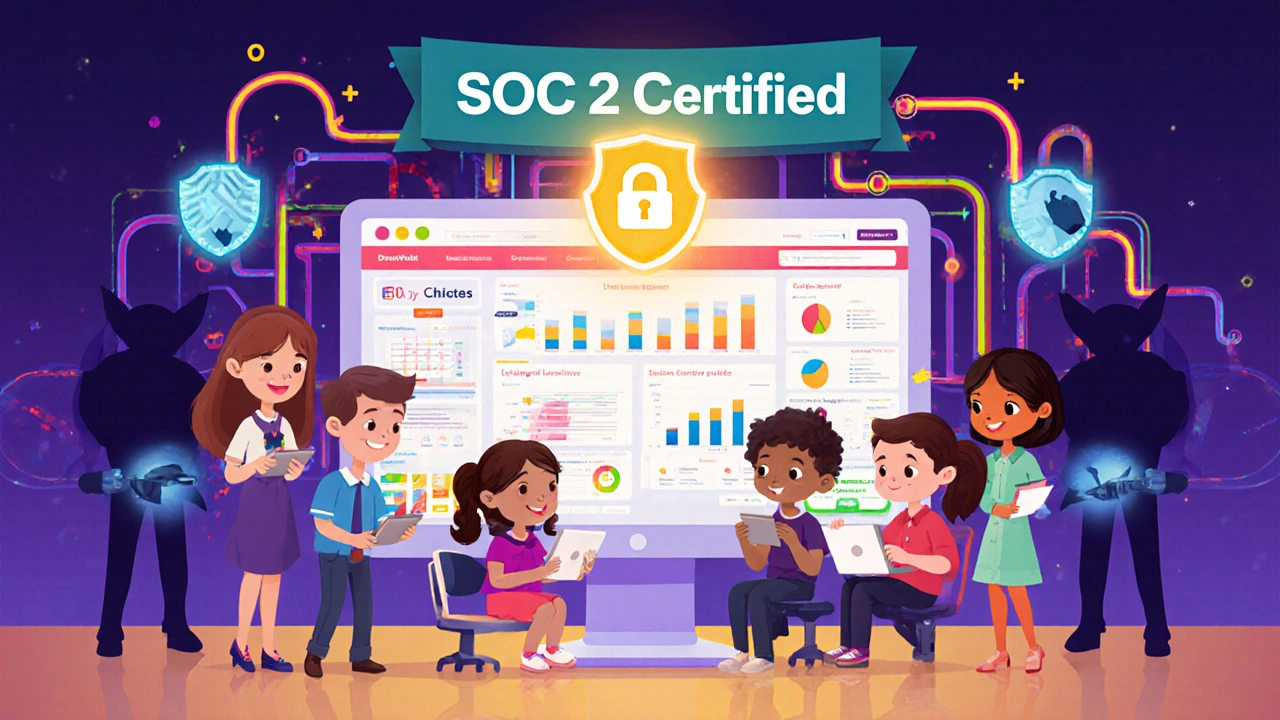Learning Platform Security: Protect Your Data and Stay Safe Online
When you log into an online course, you’re not just clicking through lessons—you’re handing over personal data, payment info, and sometimes even your face to learning platform security, the systems and policies that keep your information safe while you learn. Also known as online course safety, it’s not just about passwords—it’s about who can see your progress, how your data is stored, and whether the platform can be trusted with your privacy. Most people think security means a padlock icon or two-factor login, but real protection goes deeper. It’s in the terms of service you skip reading, the moderation rules that keep trolls out of your group chats, and the way your instructor handles your quiz answers. If your learning platform doesn’t have clear policies on data use, content moderation, or access controls, you’re at risk—even if the site looks professional.
Think about it: you’re probably using the same email and password across your course platform, your bank, and your social media. If one gets hacked, they all do. That’s why FERPA compliance, a U.S. law that protects student education records matters, even if you’re not in a university. Platforms that follow it treat your grades, attendance, and personal details like confidential files—not marketing data. And when it comes to content moderation, the rules that keep online classrooms respectful and free from harassment, it’s not about censorship—it’s about creating space where you can ask questions without fear. A platform with weak moderation is like a classroom with no teacher: chaos follows. That’s why top platforms pair moderation with clear Terms of Service, legal agreements that spell out what users can and can’t do—and why you should read them.
Security isn’t just a tech problem. It’s a learning problem. If you’re worried about who’s watching your screen during a proctored exam, or if your payment info is stored securely, you’re not being paranoid—you’re being smart. The best learning platforms don’t just offer courses—they build trust by being transparent. They explain how data is encrypted, who has access to it, and what happens if there’s a breach. They don’t hide behind vague privacy policies. They give you control. And they don’t wait for a problem to happen—they plan for it. That’s the difference between a platform that’s just online, and one that’s truly safe.
Below, you’ll find real guides that break down exactly how to spot a secure course platform, what legal protections you actually have, and how to push back when a platform doesn’t meet basic safety standards. No fluff. Just what works.

SOC 2 Certification for Learning Platforms: What It Takes to Get It Right
SOC 2 certification for learning platforms proves you protect user data with real security controls. Learn what it takes to pass the audit, avoid common failures, and win enterprise contracts.